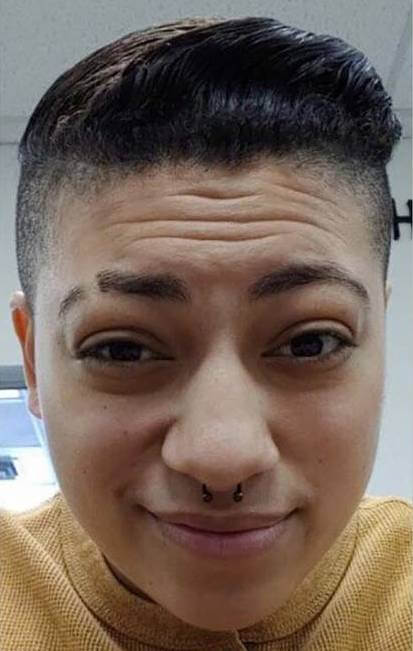A federal district court in Nevada has ruled the State Department violated the Fifth Amendment equal protection rights of Oliver Bruce Morris, a transgender man, by refusing to issue him a passport identifying him as male unless he provided a doctor’s certification of clinical treatment for gender transition.
In a November 23 ruling, Judge Gloria M. Navarro, appointed to the bench by President Barack Obama, rejected another of Morris’ claim — that denying him the passport violated his due process rights.
Morris, who was identified as female at birth but has identified as male for several years, has health insurance that covers his hormone treatment — which he receives under the care of a licensed practical nurse — but doesn’t cover gender confirmation surgery. He is identified as male on his driver’s license, and obtained a legal name change from a Nevada court.
Nevada federal district judge orders State Department to process application without doctor’s certification
When he applied for a passport in October 2018, he checked the male box and provided, as documentation, his driver’s license, his original birth certificate, which indicates his sex as female, and the court record of his legal name change.
Apparently stymied by the inconsistency between his driver’s license and his birth certificate — and not making the connection about his name change — State Department bureaucrats sent Morris a letter asking him to “verify his sex,” accord to Judge Navarro’s opinion.
“In order to issue you a passport card reflecting a sex different from the one on some or all of your citizenship and/or identity evidence, please send us a signed original statement on office letterhead from your attending medical physician… stating that you have had appropriate clinical treatment for transition to the new sex,” the State Department letter read.
Morris, however, is not under a physician’s care, which would not be covered by his health insurance for the transition care he receives. A legal services attorney replied to the State Department on his behalf, “explaining he would not provide the requested certification because he could not afford gender transition treatment, and the requirement violated his constitutional rights,” according to Navarro’s opinion.
When the State Department, in turn, denied Morris’ application, Nevada Legal Services attorneys Christena Georgas-Burns and David A. Olshan filed suit on his behalf.
Morris’ Fifth Amendment due process claim asserted that he has a constitutional right to refuse medical treatment for gender transition. His equal protection claim argued that because cisgender people are not required to provide a physician’s verification of their sex to get a proper passport, such a requirement cannot be imposed on transgender people.
The court rejected Morris’s due process claim, reasoning that the government is not requiring Morris to submit to surgical treatment in order to get a passport since it would happily issue him a passport with a female sex designation. That, of course, is not what Morris is seeking, and a passport identifying him as female but with his current picture and a male name would undoubtedly lead to many problems as he traveled internationally.
On the equal protection question, Navarro noted that the Ninth Circuit Court of Appeals, under whose jurisdiction her court sits, in a 2019 ruling in Karnoski v. Trump — a lawsuit opposing the ban on transgender military service — held that the federal government faces heightened scrutiny when challenged for applying a policy in a way that discriminates against a trans person. The facts Morris presented, Navarro found, were sufficient to sustain a claim of unequal treatment. Under the heightened scrutiny standard, the government has the burden of providing an “exceedingly persuasive justification” for its requirement that a physician’s statement verify Morris’ gender and certify clinical transitional treatment as a prerequisite for him getting a passport.
The State Department, she concluded, “frames its purported interest too broadly and fails to provide evidence that the interest is exceedingly persuasive… There is little doubt that the State Department has an interest in accurately representing the identities of US citizens to foreign nations. However, the only facet of identity at issue here is a passport applicant’s sex or gender. Defendant has provided no explanation, let alone any evidence, of why the State Department has an important interest in verifying a transgender passport applicant’s gender identity, nor a cogent explanation of why the Policy requiring a physician’s certification increases the accuracy of issued passports.”
Navarro noted that “not all transgender persons receive or require physician treatment.”
The court, then, implicitly accepts Morris’ argument that one’s gender identity and appropriate sex designation on a passport are not related to one’s genital configuration. Recognition as a transgender person is not based on undergoing gender confirmation surgery. The requirement for a physician to certify “clinical” treatment for transition, in Navarro’s view, is not supported by an “exceedingly persuasive” explanation here.
Navarro ordered the State Department to process Morris’ passport application without requiring any physician’s certification and approve it if it met all the other requirements.
Navarro’s ruling was made on the issue as presented in Morris’ case and did not reach a conclusion more broadly on the constitutionality of the State Department policy as such.
To sign up for the Gay City News email newsletter, visit gaycitynews.com/newsletter.



































